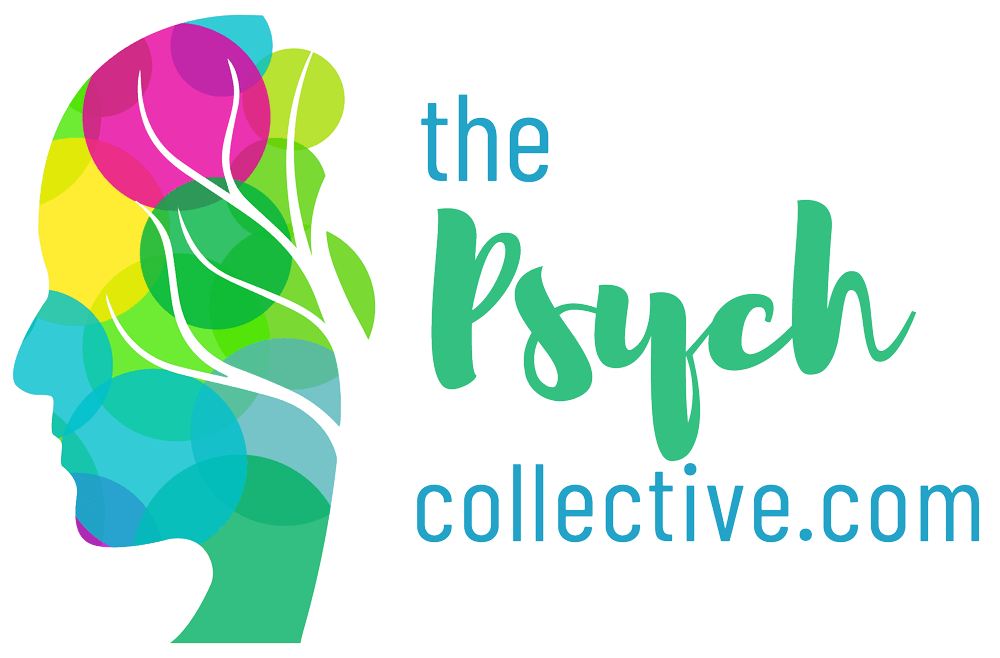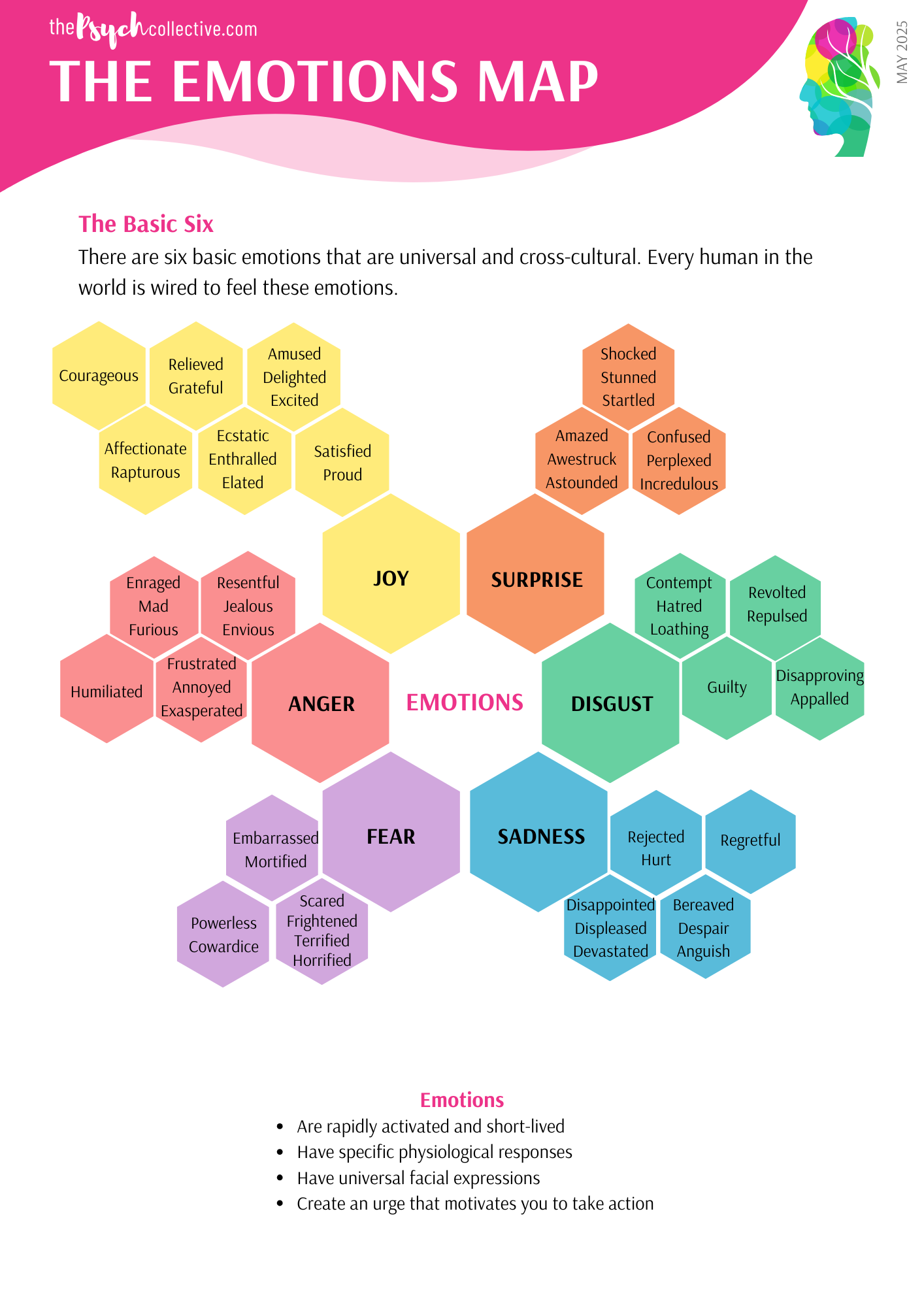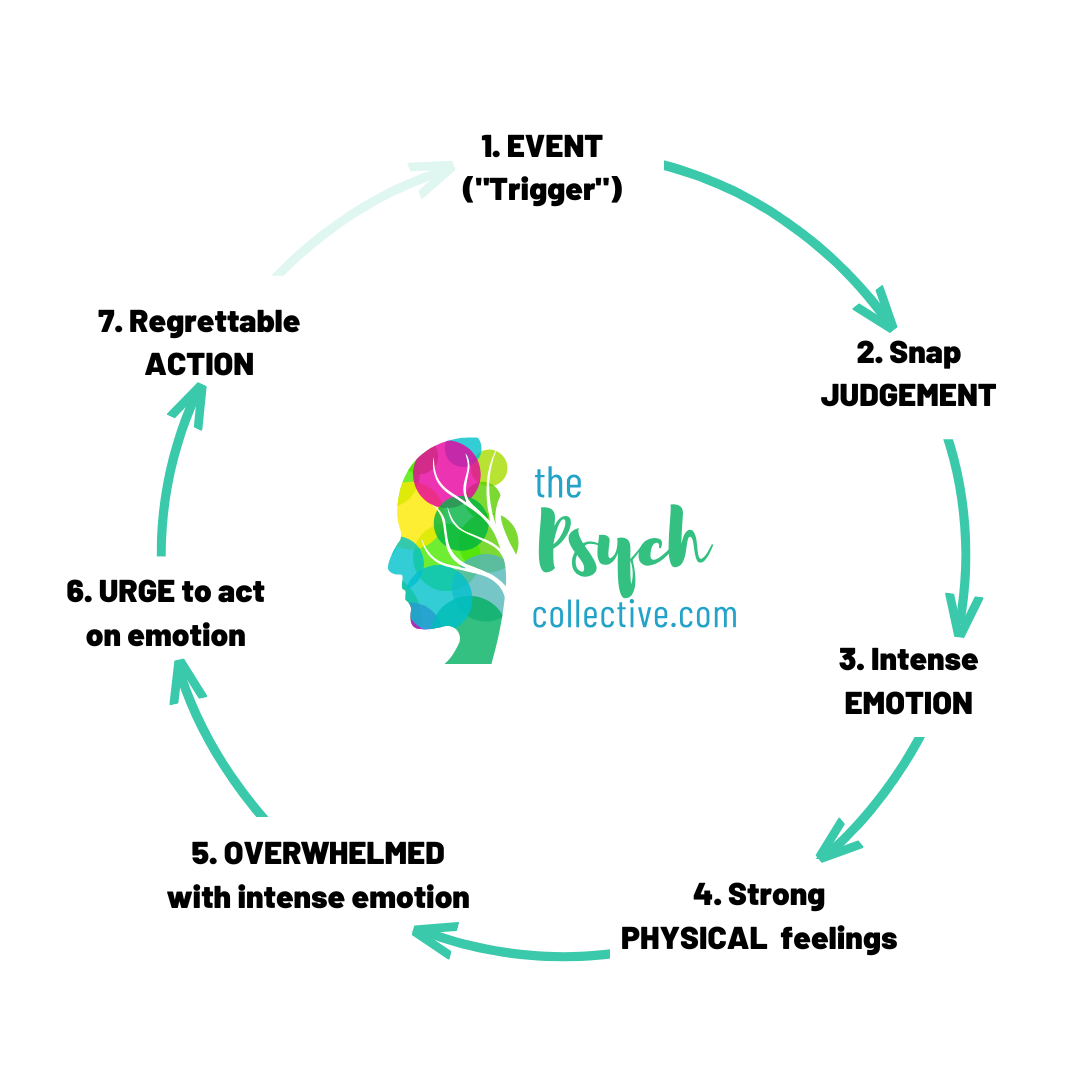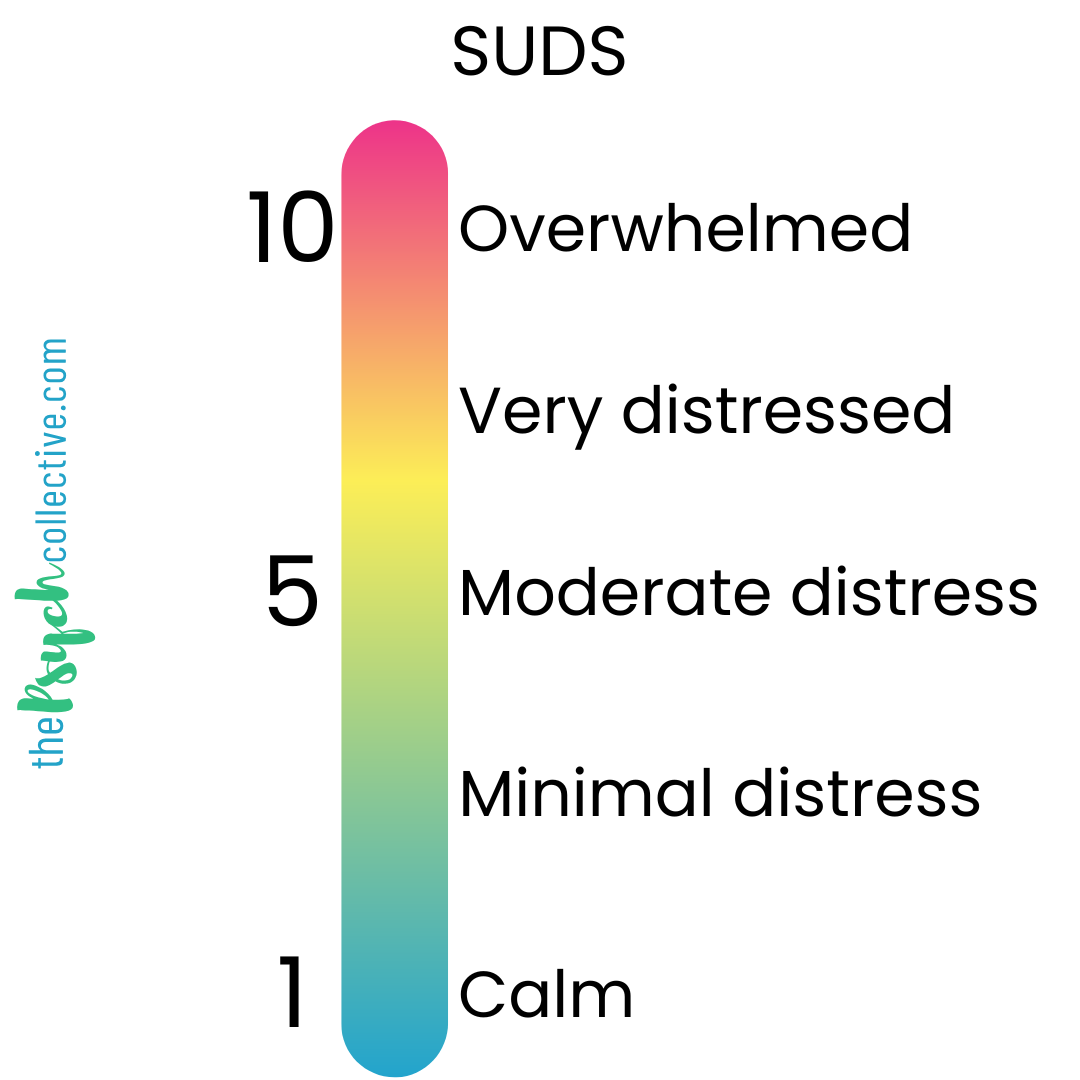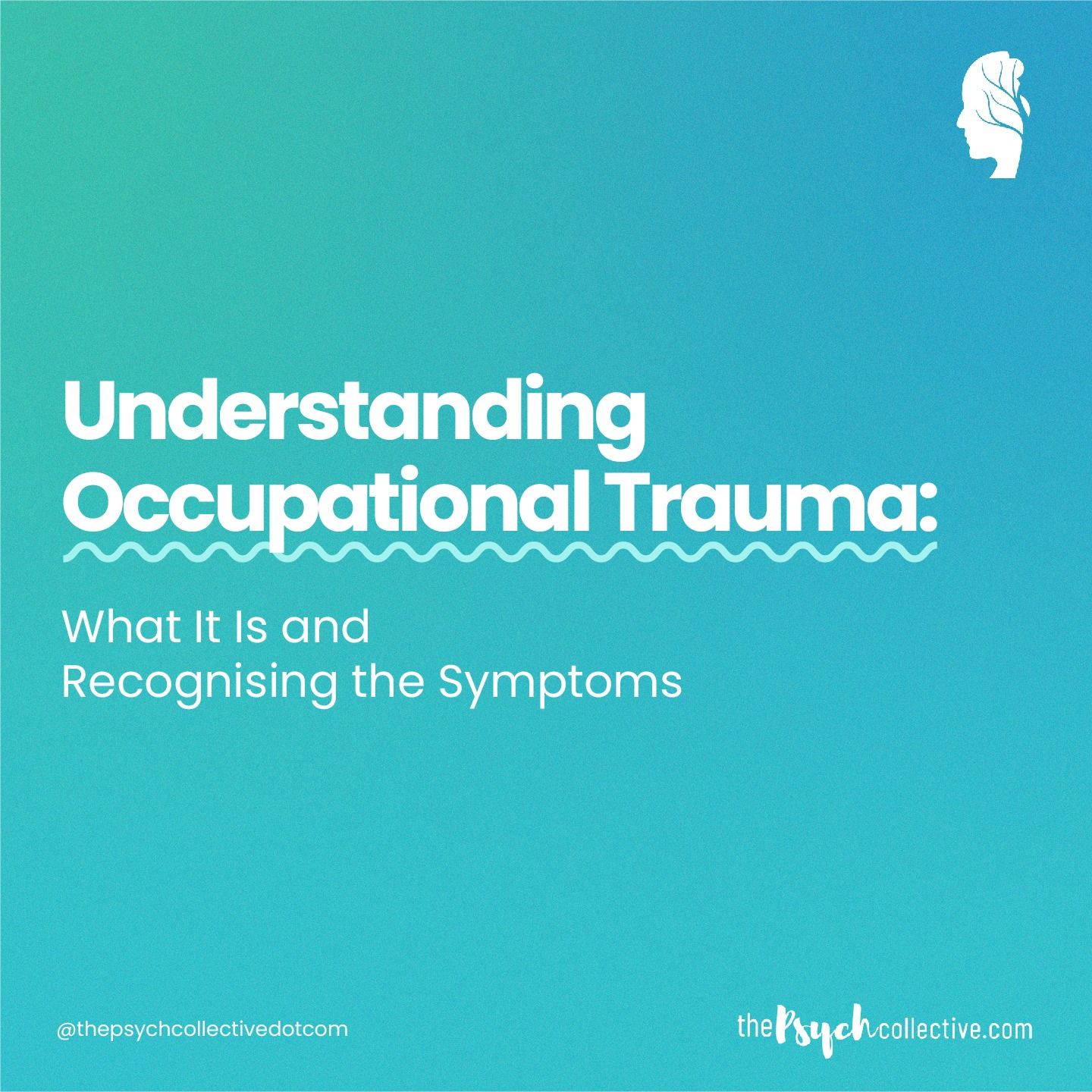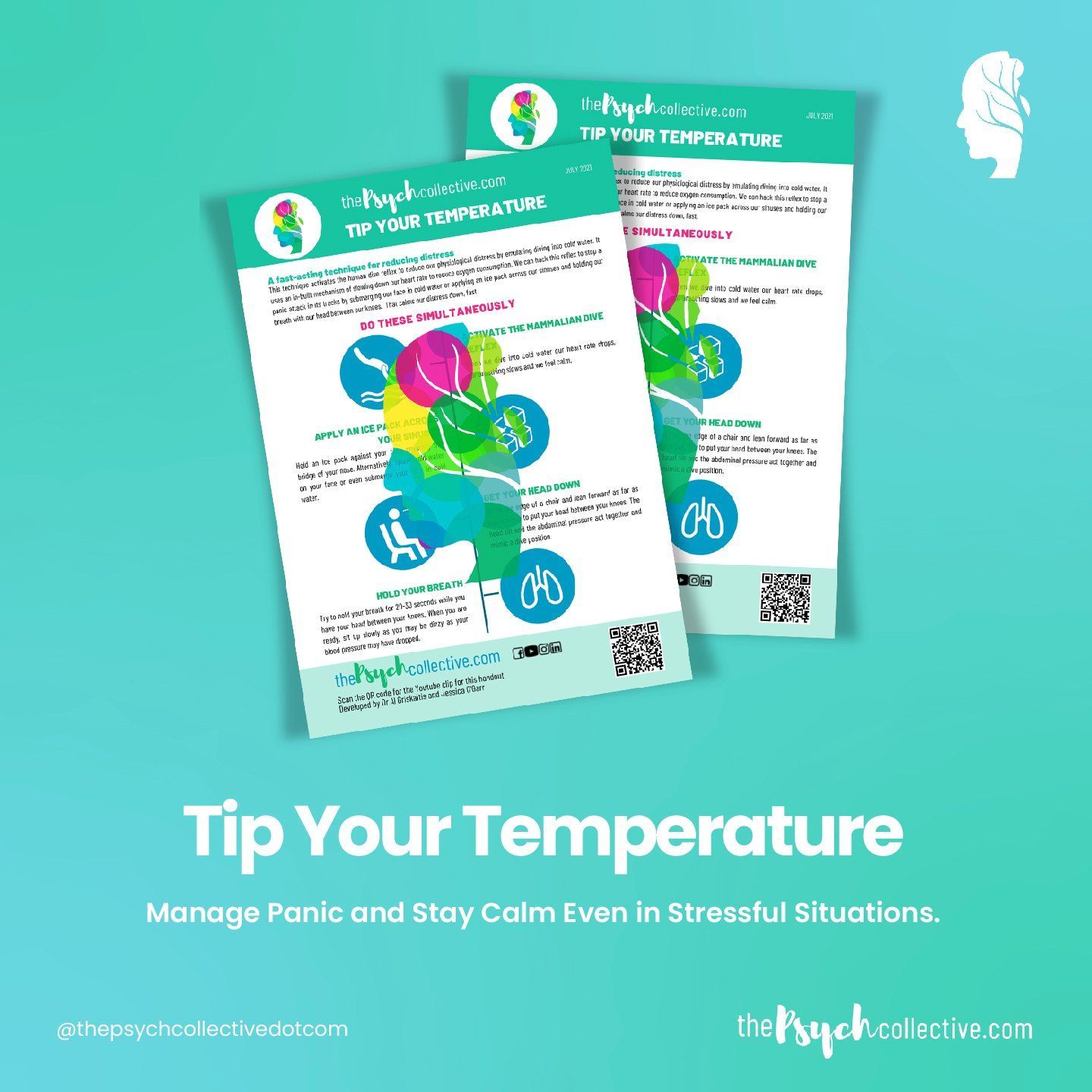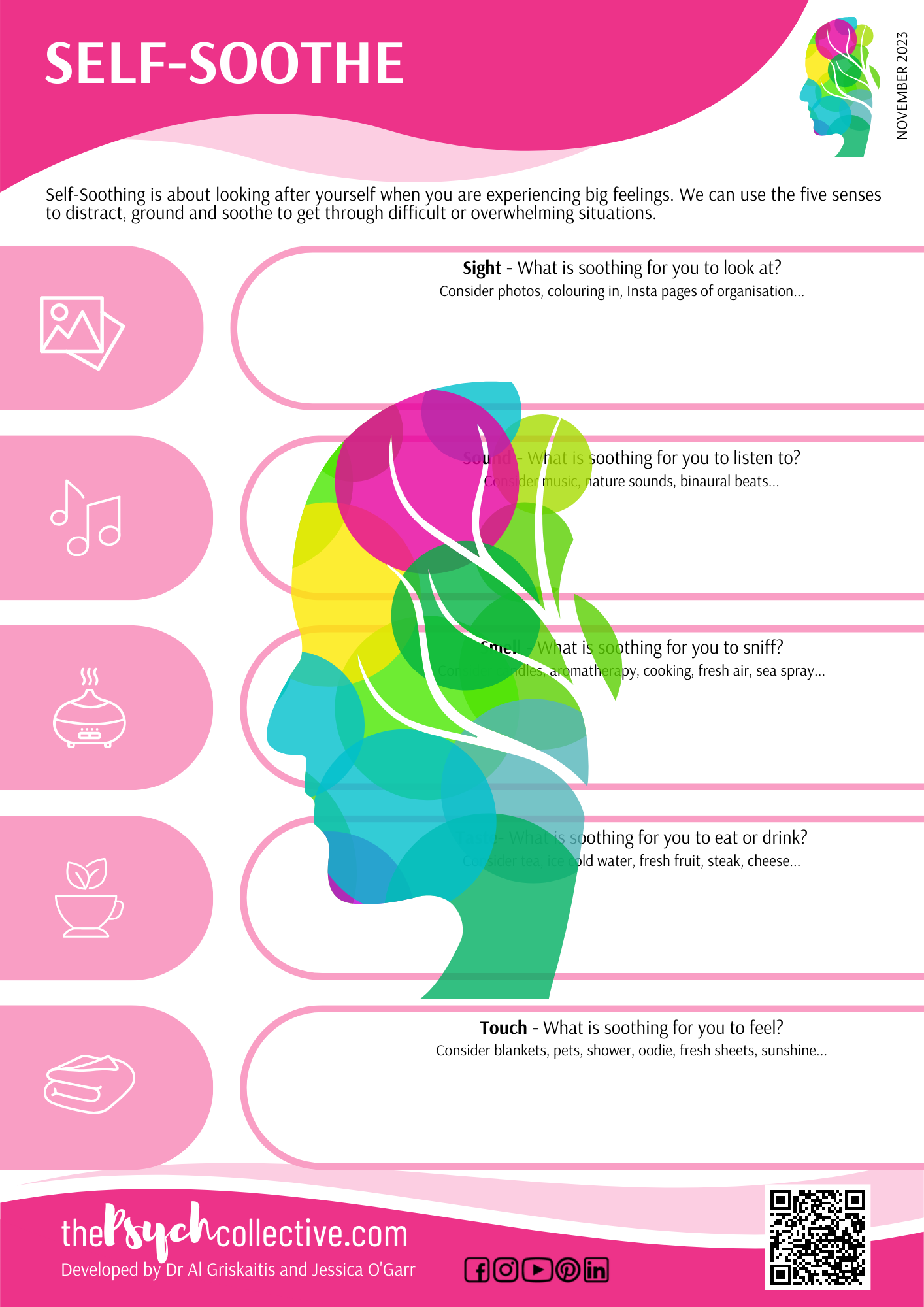Temperament and Neuroticism
Neuroticism and Emotional Sensitivity
Why Some People Feel More Than Others
Have you ever wondered why some people seem to breeze through life unfazed, while others feel everything deeply? Maybe you’ve thought “Why do I react so strongly to things that don’t seem to bother anyone else?” Or perhaps you’ve been on the other side — watching a partner, friend or child become overwhelmed, while you're left wondering what all the fuss is about.
This difference often comes down to sensitivity, which is closely tied to something psychologists refer to as neuroticism — a personality trait that influences how strongly you experience negative emotions like anxiety, fear, or sadness.
What Is Neuroticism?
Neuroticism refers to how prone someone is to experiencing negative emotions like anxiety, fear, sadness, or irritability. People higher in neuroticism tend to feel things more intensely and may be more easily thrown by stress. Those lower in neuroticism are often seen as more emotionally stable, laid-back, or “unflappable”.
Neuroticism is largely genetically determined, though trauma or difficult life experiences can also push someone into higher sensitivity over time. It’s not about being dramatic or attention-seeking — it’s about how your nervous system is wired.
Why Are Some People More Sensitive?
As we discuss in our online course Surviving Distress (find out more here), some people naturally live at the higher end of the Subjective Units of Distress (SUDs) scale. It’s not always about what’s happening around them — it often comes down to temperamental sensitivity, which is closely linked to a personality trait known as neuroticism.
You’ll know this if you’ve met someone who is easily overwhelmed, emotionally intense, or often on edge — they’re probably high in neuroticism. On the flip side, you’ve likely met people who are chilled out, relaxed, and not easily rattled. They’re low in neuroticism. These are simply different ends of the emotional sensitivity spectrum.
The Orchid and Daisy Metaphor:
A Way to Understand Emotional Sensitivity
Let’s look at this with a metaphor I love:
Are you an orchid or a daisy?
A friend once explained temperament like this. Orchids are stunning but high maintenance. They need exactly the right amount of sun, the perfect amount of water, and just the right potting mix to flourish. And if you move them even slightly from their perfect spot, they can wilt.
Daisies, though? Daisies are easy. They grow anywhere — by the beach, in drought, on the roadside, in parks. Kids trample them, dogs pee on them, and they just keep blooming.
People are like this too. Some are born with a hypersensitive temperament — like an orchid. Everything needs to be just right for them to feel okay, and small disruptions can throw them completely off balance. Others are more like daisies — emotionally hardy, adaptable, and unfazed by what life throws at them.
This is where the concept of temperament comes in. It’s not something you choose. It’s something you’re born with. But if you’re an orchid, you can learn to become more tolerant of change and more skilful in how you respond to stress. And remember: orchids might be delicate, but they are stunning, unique, and — in my view — often the most emotionally insightful people around.
How Neuroticism Shapes Your SUDs Range
The level of neuroticism you sit at shapes the range of your distress. If you’re high in neuroticism — an orchid — your daily emotional range might sit between 5 and 10 on the SUDs scale. You might never really feel like a 1. Some patients even say, “I don’t know what a one feels like — I’ve never been that low.”
In contrast, someone low in neuroticism — a daisy — might be a 1 or 2 most days, only spiking higher in genuinely extreme situations. Even on a bad day, their reaction might not pass a five.
But here's the issue — in our culture, we often value daisies more. They’re seen as strong, resilient, and "low maintenance". Meanwhile, orchids can be judged as too sensitive, too emotional, or “too much”. This judgment becomes a real problem, especially in parenting. If you’ve got a highly sensitive child being raised by a less sensitive parent, you can end up with emotional invalidation. The daisy parent may not understand or accept the orchid child’s intensity — not out of malice, but simply because it’s so far removed from their own experience.
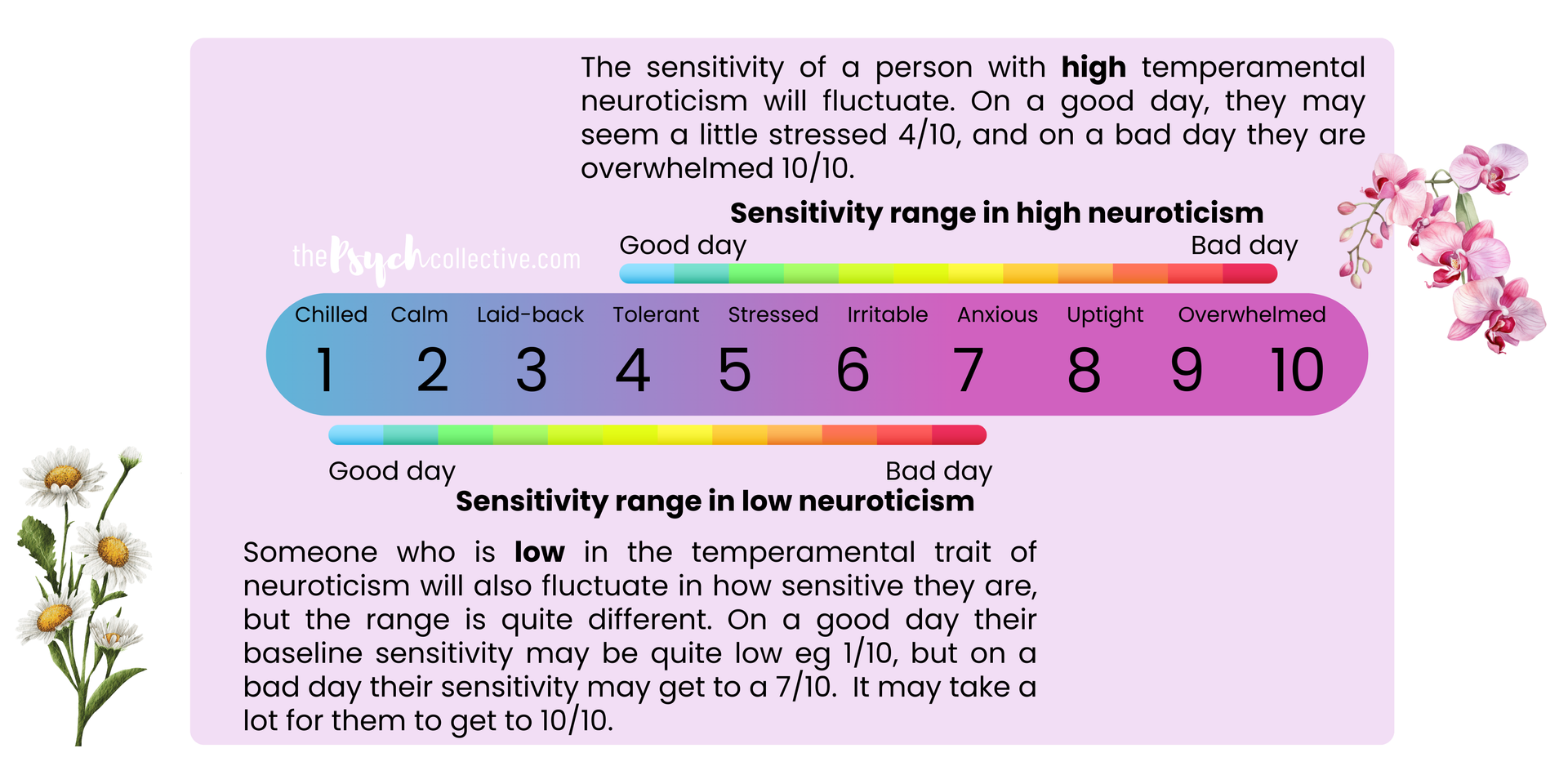
Emotional Sensitivity Isn’t Weakness — It’s Biology
To illustrate this, I often use another metaphor: peanut allergies.
Imagine you’re totally fine with peanuts. You can eat satay chicken and not feel a thing. But someone else could go into anaphylaxis just from smelling peanuts. You’d never say to that person, “Do you think you could tone down your reaction? It’s only a peanut.”
Yet we do that all the time with emotions. Someone has an intense emotional reaction — maybe a panic attack, or a meltdown — and we say things like “Calm down,” or “It’s not that bad.” But their system is just more reactive. It's not over-the-top — it’s simply the way they’re built.
And just like someone with a peanut allergy needs an EpiPen, someone with high emotional sensitivity needs skills to regulate their response. The good news? These skills can be learned.
We talk about this in great detail in our online course Surviving Distress.
Can Trauma Increase Sensitivity?
Absolutely. While neuroticism is mostly genetic, trauma — particularly chronic trauma or PTSD — can push someone higher up the sensitivity scale. A person who used to be relatively unflappable might find themselves overwhelmed by things that never used to faze them.
This is particularly true for those who grew up in invalidating environments — where their emotions weren’t recognised, understood, or were even punished. Over time, they may develop patterns of shutting down or becoming hyper-alert, which further fuels emotional dysregulation.
We call this Acquired Neuroticism and we discuss this in our book The Depression Solution.
What This Means for Your Skills Practice
If you’re someone who identifies as an orchid — with high emotional sensitivity or neuroticism — it’s even more important that you practise emotional regulation skills. Your SUDs are likely to climb quickly, and you’ll need to be able to catch that rise early and intervene before it hits a peak.
The more sensitive you are, the more essential it is to develop mastery in the skills we’ll be teaching. These might include grounding, breathing techniques, thought defusion, or mindfulness. And just like going to the gym, the more you practise, the stronger you get.
TO help you out, we have made a deck of Coping Cards this is like a therapist in your pocket. They come in a travel tin so you can carry them around with you where ever you go.
Check them our here. We offer them in hard copy and an instant digital download.
Need more?
We have a free PDF download about this topic that you can access right away.
It includes the image above of the orchid and daisies at either end of the neuroticism scale.
Get your copy here.
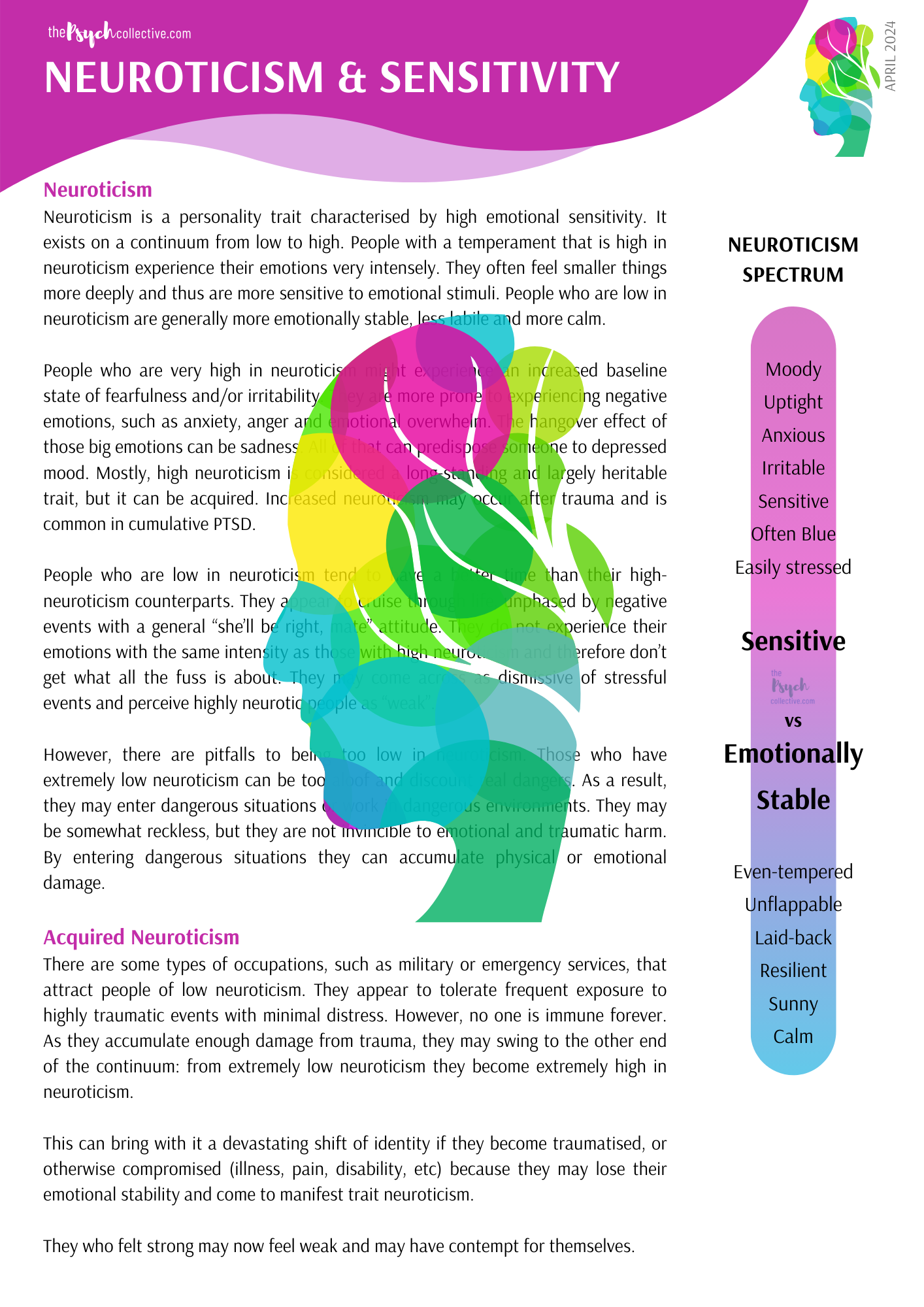
Share
Categories
About Our Resources
We offer actionable resources and teach real skills to help people make meaningful change in managing mental health issues through different modes depending on people's learning preferences including infographics, text, worksheets, handouts and video.
